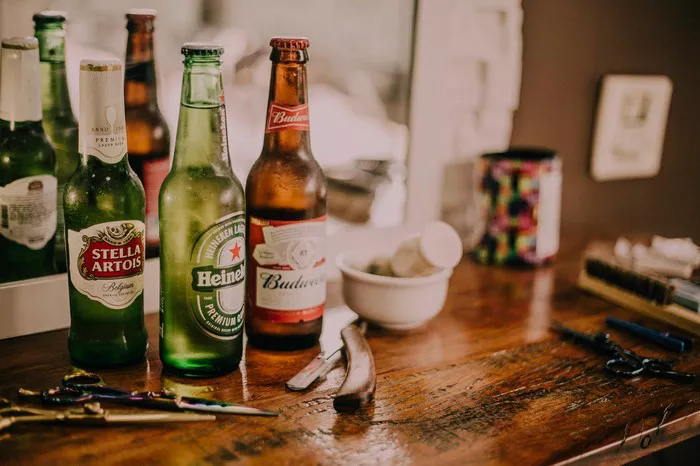Beer, a beloved beverage enjoyed worldwide for centuries, has long been associated with relaxation and social gatherings. However, one of the common experiences many individuals have after consuming beer is feeling tired or sleepy. This phenomenon prompts the question: why does beer make you tired? To comprehend this effect, it is essential to delve into the intricate interactions between alcohol, the body, and its impact on various physiological processes.
Alcohol’s Impact on the Central Nervous System
Understanding why beer induces tiredness necessitates an exploration of how alcohol affects the central nervous system (CNS). Ethanol, the type of alcohol found in beer, acts as a depressant on the CNS. It affects neurotransmitters in the brain, notably gamma-aminobutyric acid (GABA) – a neurotransmitter that inhibits brain activity, inducing relaxation and sedation. As beer is consumed, ethanol begins to inhibit certain neurotransmitters, leading to a slowdown in brain function and contributing to feelings of drowsiness or fatigue.
Effects of Alcohol on Sleep Patterns
The relationship between beer consumption and tiredness is closely tied to its impact on sleep. While alcohol is often thought to aid sleep initiation, its effects on sleep architecture can be disruptive. Research indicates that while alcohol may help individuals fall asleep faster, it can negatively impact the quality of sleep. Consumption of beer or any alcoholic beverage can disrupt the later stages of sleep, leading to fragmented and less restorative rest. This disruption in the sleep cycle can result in increased tiredness or fatigue upon waking, contributing to the perception that beer makes one feel tired.
Dehydration and its Role in Fatigue
Another crucial factor contributing to feeling tired after consuming beer is dehydration. Alcohol is a diuretic, meaning it increases urine production and subsequently leads to dehydration. Dehydration, even at mild levels, can cause fatigue and reduced energy levels. When indulging in beer, particularly in significant quantities, the dehydration effect can exacerbate feelings of tiredness, leaving individuals feeling lethargic and drained.
Blood Sugar Levels and Energy Drain
The impact of beer on blood sugar levels can also contribute to feelings of tiredness. Alcohol consumption can cause fluctuations in blood sugar levels, leading to a rapid increase followed by a sharp drop. This rapid decline in blood sugar can result in fatigue or a feeling of low energy. When combined with the depressant effects of alcohol on the CNS, these fluctuations can intensify the sensation of tiredness.
Metabolic Processes and Tiredness
The metabolism of alcohol itself requires energy. When beer or other alcoholic beverages are consumed, the body prioritizes the breakdown and elimination of alcohol over other metabolic processes. This diversion of energy resources to metabolize alcohol can contribute to an overall feeling of tiredness or lethargy. The body’s focus on processing alcohol can leave individuals feeling drained or fatigued as it directs its efforts toward alcohol elimination.
Individual Variations and Tolerance Levels
It’s important to note that the impact of beer on tiredness can vary significantly among individuals. Factors such as body weight, tolerance levels, genetics, and overall health can influence how alcohol affects the body. Individuals with lower alcohol tolerance or those who are more sensitive to its effects may experience tiredness more profoundly even after consuming smaller amounts of beer.
Alcohol Content and Timing of Consumption
The alcohol content in beer plays a significant role in its potential to induce tiredness. Beers with higher alcohol by volume (ABV) can have a more pronounced effect on CNS depression and subsequent tiredness. Additionally, the timing of beer consumption can also influence its impact on tiredness. Consuming beer closer to bedtime can exacerbate its effects on sleep quality, contributing to increased feelings of tiredness the next day.
Nutritional Impact of Beer
Beer also has a nutritional aspect that may contribute to feelings of tiredness. While moderate consumption may not significantly impact overall nutrition, excessive beer intake can displace nutrient-rich foods in the diet. This displacement can lead to deficiencies in essential vitamins and minerals, potentially affecting energy levels and contributing to tiredness.
Strategies to Mitigate Tiredness from Beer Consumption
To alleviate or prevent tiredness induced by beer, several strategies can be adopted. Moderation is key—limiting the quantity of beer consumed can reduce its impact on sleep quality and fatigue. Hydration is equally important; alternating beer with water can help counteract the dehydrating effects of alcohol. Eating a balanced meal before drinking can also slow the absorption of alcohol and reduce its impact on blood sugar levels and tiredness.
Conclusion
In conclusion, the phenomenon of feeling tired after consuming beer involves a combination of factors, including its impact on the central nervous system, sleep patterns, dehydration, blood sugar levels, and metabolic processes. While moderate beer consumption can be enjoyed without significant tiredness, excessive intake, individual variations, alcohol content, and timing of consumption can exacerbate its effects on fatigue. Understanding these factors empowers individuals to make informed choices regarding beer consumption, promoting responsible and enjoyable drinking experiences while minimizing feelings of tiredness and fatigue.


